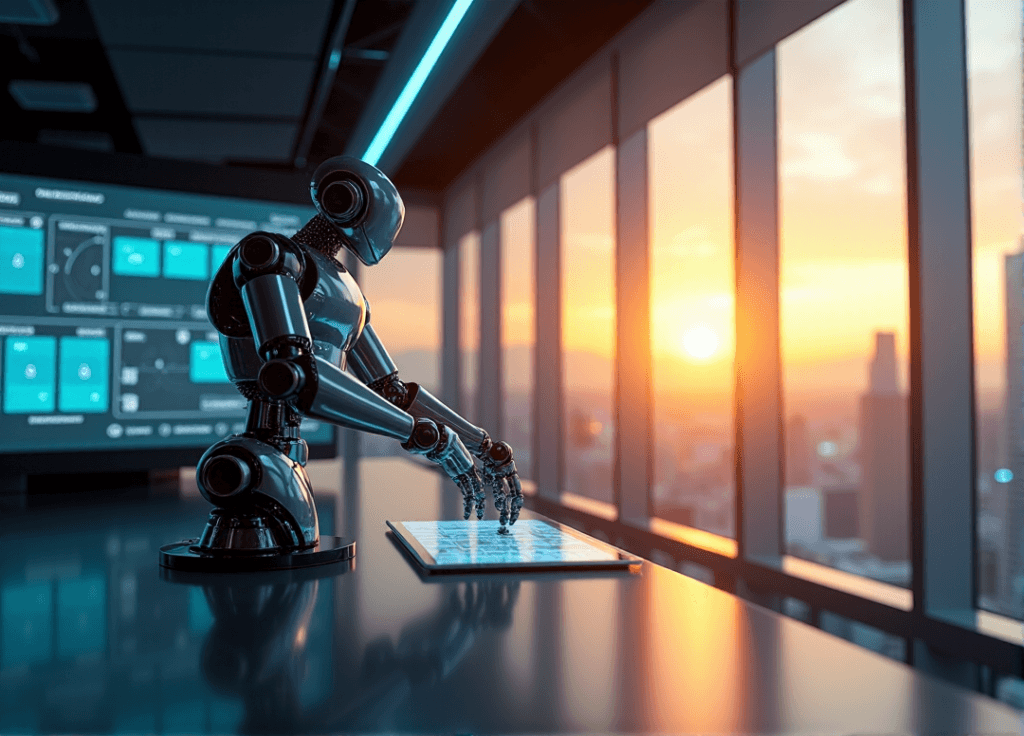Unlock Business Transformation with Intelligent AI Automation Strategies
Will AI Automation Skills Replace Human Workers by 2030?
As businesses continue to adopt intelligent strategies, developing strong AI automation skills is crucial for staying ahead. In this article, we’ll explore how harnessing AI automation skills can unlock business transformation and drive growth in today’s rapidly evolving landscape.
The Rise of AI Automation: Understanding the Power of Machine Learning Capabilities
In recent years, artificial intelligence (AI) has revolutionized various industries by automating tasks, enhancing productivity, and driving innovation. One of the key drivers behind this transformation is machine learning capabilities – a subset of machine learning algorithms that enable AI systems to learn from data and improve performance over time.
- **Predictive Maintenance**: Machine learning capabilities can help predict equipment failures, reducing downtime and improving overall efficiency.
- **Automated Process Management**: By automating routine tasks, organizations can free up resources for more strategic initiatives and focus on high-value activities.
The Benefits of AI Automation: Unlocking Business Transformation
Embracing AI automation skills can bring numerous benefits to businesses, including:
- Increased Efficiency**: Automation enables organizations to streamline processes, reduce manual errors, and improve productivity.
- Enhanced Decision-Making**: AI-driven insights provide stakeholders with data-driven recommendations, enabling informed decision-making.
- Innovation and Growth**: By automating routine tasks, businesses can focus on strategic initiatives, driving innovation and growth.
The Key to Success: Developing Strong AI Automation Skills
To unlock business transformation with AI automation strategies, organizations must develop strong AI automation skills, including:
- Data Science**: Understanding data analysis, visualization, and interpretation is crucial for developing effective AI solutions.
- Machine Learning Expertise**: Developing machine learning capabilities requires expertise in algorithms, models, and deployment strategies.
- Automation Tools**: Familiarity with automation tools, such as RPA, is essential for implementing AI-driven workflows.
Achieving Business Transformation: A Case Study
In 2019, a leading manufacturing company implemented an AI-driven predictive maintenance solution, leveraging machine learning capabilities to predict equipment failures. The results were impressive:
| Before Implementation | After Implementation |
|---|---|
| 20% Equipment Downtime | 5% Equipment Downtime |
| $1 Million Annual Maintenance Costs | $300,000 Annual Maintenance Costs |
The Future of Work: Will AI Automation Skills Replace Human Workers?
While AI automation skills will undoubtedly change the nature of work, it’s unlikely to replace human workers entirely. Instead, AI will augment human capabilities, enabling workers to focus on high-value tasks that require creativity, empathy, and critical thinking.
Conclusion: Unlocking Business Transformation with Intelligent AI Automation Strategies
In conclusion, developing strong AI automation skills is crucial for business transformation in today’s rapidly evolving landscape. By harnessing machine learning capabilities, organizations can unlock innovation, growth, and efficiency. As the future of work unfolds, one thing is clear: embracing AI automation strategies will be essential for staying ahead.
Additional Sources of Information
For further reading on AI automation skills and business transformation, we recommend exploring the following sources:
- The Future of Work in the Age of Artificial Intelligence by McKinsey
- How to Develop Your Company’s AI Capabilities by Harvard Business Review
- The Future of Work in the Age of Artificial Intelligence by Gartner
Explore more in our category page or visit our homepage.
